Life as a Digital Nomad: My Advice and Truths
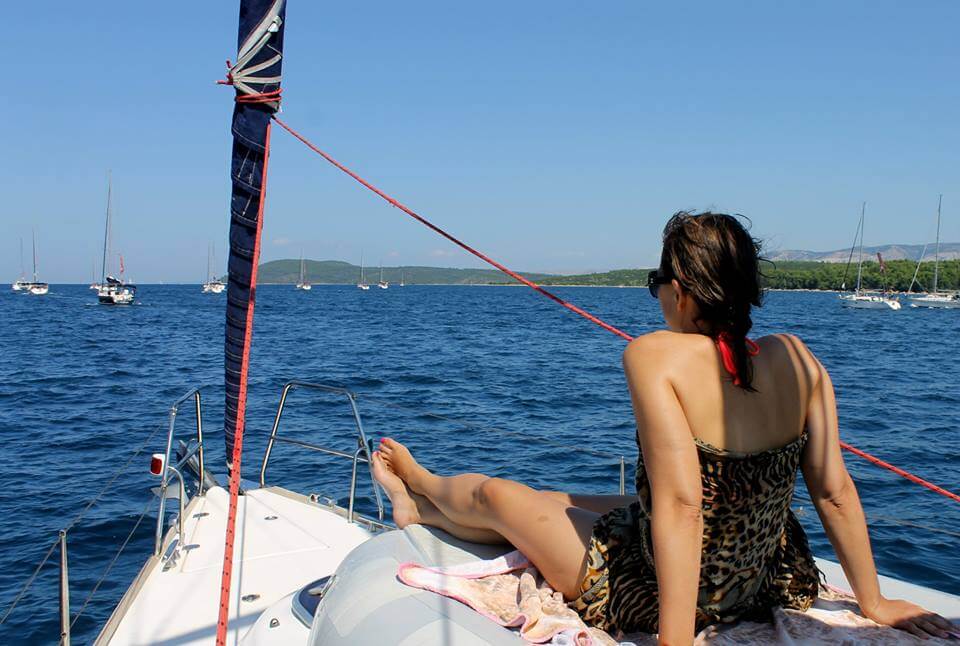
How to be a digital nomad... Kinda.
Let me be clear before you start reading this. This is not a guide on how to become a digital nomad. Neither does it offer real advice on how be a digital nomad and have the dreamy location-independent travelling lifestyle of your dreams. It is however, an honest account of how I came to be a digital nomad for two years, what I enjoyed about this lifestyle and what I didn't. Why it was for us for a while, and why it isn't now. I have included some practical tips, some gear and things worth having, as well as some 'lessons learnt' style advice if you're thinking about making changes so you too can live the digital nomad life, but please just consider it more one person's story than anything else.
How I became a digital nomad (the short version)
In October 2011 I changed careers from a full-time job in the City of London (working in a very corporate industry) to a freelance career as a copywriter, blogger and author of fiction. For over two years, I was a so-called digital nomad, working as I travelled with my partner who is also location-independent. I lived and worked in countries like Morocco, Thailand, Malaysia, Finland, Norway, Canada, Portugal and France, and we stayed in places for as short a time as a few days, to more than three months.
Now (in 2018) I still do the same work (blogging/writing) and I am still location independent, in that I can work anywhere with an Internet connection, however, during our travels we found a place we liked so much that we didn't want to leave, Amsterdam.
Below you will find answers to the questions I am most commonly asked about how to become a digital nomad, and what life is really like when you work and travel. Most of this post was written while I was still travelling so it may all seem a bit outdated if you're a regular reader. You can find more updated posts on related topics like advice for beginner freelancers here, as well as some productivity advice here. You may also like these posts about how to become location independent, and deciding between a job that pays the bills and something new that you're more passionate about.
*****
What is a digital nomad?
Digital Nomad: "A digital nomad is someone who leverages technology and the internet to work remotely and more generally conduct their lifestyle in a nomadic manner. *
In response to an increasing number of reader emails I hope the following answers to questions I'm regularly asked, will help offer an insight on how I became a digital nomad, how I maintain this lifestyle and furthermore, offer advice to those who may be considering life as a location independent freelancer. It's fair to say that there are many other ways that you can make money while travelling or leading a nomadic lifestyle, but freelancing is what I do so that's what I can comment on.
The more I am asked questions about my location-independent lifestyle, the more I think they can ultimately be addressed in my answers to the following;
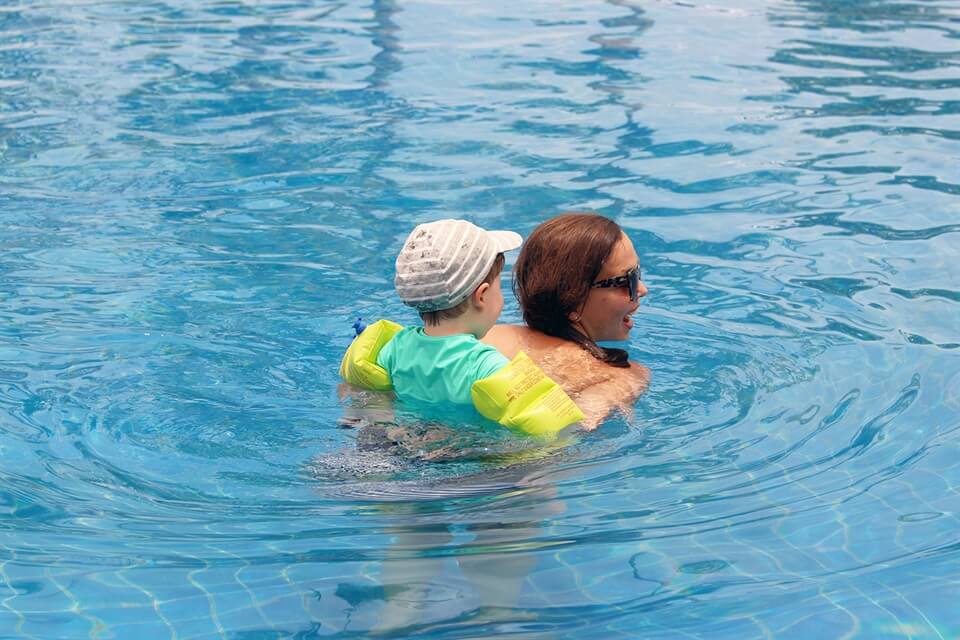
What job do you do as a digital nomad?
I earn money as a copywriter, a travel writer, a ghost blogger and an author of fiction. I also earn a (very) small amount of money from collaborations on this blog. I consider myself very lucky to have so many strings to my bow, however, they are all necessary in order to ensure an income I can live off and save with. Saving is very important to me as there is a lot of risk with freelancing and we have a little boy now.
Some months I earn lots of money. Some months I don't. I earn a lot less than I did as a full-time employee but my outgoings are considerably less too. I'm also a member of a team. My partner runs a number of online businesses so as long as our combined income exceeds our combined outgoings we're happy. It's funny how these fundamentals remain the same even when you live an unconventional lifestyle.
I have created a presentation and workshop all about how to get started as a freelancer and how to do this while travelling full-time . You can find out more about Going Freelance and how I can help you with this here.
How do you keep working when you're travelling so much?
Balance and priorities. Other digital nomads fit work around travel. Work is their necessary evil in order to travel. That's not the case for us. More often than not my partner and I plan our travels around our work schedule. If we have big projects that need a lot of attention we'll find somewhere quiet to do this in. If we have a bit more flexibility we will pursue travel goals - like snowboarding in Finnish Lapland - but we always take work into consideration when picking a new destination.
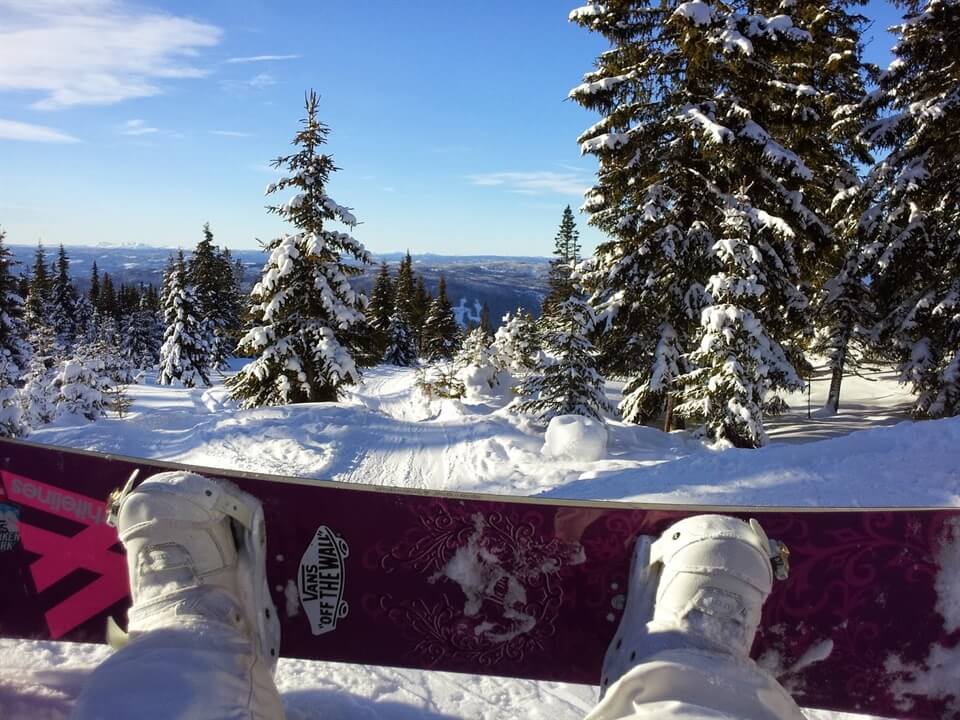
What tips or advice would you give to people planning on becoming nomadic or location independent?
I hope the following advice is taken as both helpful information abd a little inspiration to those considering this lifestyle.
Here are my truths about life as a digital nomad:
On freelancing...
- You can do almost any job online now. And nearly all skills are transferable to any number of jobs or projects. It's just up to you to find those jobs and/or transfer the skills.
- Don't limit yourself to just one career or providing one service to one type of client. There are thousands of potential clients out there needing help that they are willing to pay for. Tell yourself that every day when you're starting out.
- If you can't love what you do to pay the bills and travel, it's important to at least like it or you'll begrudge having to do it.
- You have more skills than you think you do. Try writing a list of all the skills and experience you've gained until now; all the apps and types of software you're familiar with, the languages you speak, the topics you know a lot about, the skills you've gained from part-time and full-time jobs, work experience or a former career path. If you're uncertain what to do as a freelancer that list you create is the foundation for figuring this out.
- Have savings. And a Plan B. And maybe a Plan C.
- Determining what you don't want to do is just as important as knowing what you do want to do.
- The internet is your best friend. Ask her any question you like and you may find the answer you're looking for. But use her wisely... Be productive and learn. And install SelfControl . Like, now.
- Open a Dropbox account. Get some Moo cards. Get yourself on Skype. Think about using Evernote (and if you don't know where to start I recommend this guide - it's pricey but worth it). Did you install SelfControl already? (Or Freedom for Windows )
- Play nice online. There are no referees on most websites, but there is no delete forever mechanism either.
- Prepare for quiet months like August, December and January when clients are on holiday or work is not their priority.
- If you can, start freelancing while still in full-time work.
- Be prepared to work for free in the beginning. It's the best way to build a portfolio and gain testimonials quickly. Though be very selective about who you work for and limit the time you give them with mutually agreed, achievable goals and ensure they pay with a reference, a testimonial and maybe some link juice. And always ensure the work (and the client) is interesting, relevant and something you can be proud to refer to.
- You are not alone. I have sighed through doubt, suffered an onslaught of set backs, dealt with rejection, felt paralysed with confusion and questioned what I'm doing ritually in the last year. Very little brings me comfort during those moments (though cake and a walk in the sunshine do help) but I find a strange reassurance in this saying: I can't do this but I'm doing it anyway .
On working as you travel...
- If travel is your ultimate goal and much more important than work or mapping out a career then don't fight it, but be prepared to work for it. Stay put, work your socks off in two or three jobs you're not fussed about leaving, save money and then travel like the wind, far and wide. Or look into working or volunteering abroad.
- Don't go until you are 99% ready. You'll never be 100% ready.
- Be prepared to never, ever again stay somewhere where there's no internet.
- It's okay to "go home" and touch base with those you love while being a digital nomad. In fact, I'd say it's imperative.
- Enjoy the journeys. The one that takes you to new countries and cities and cultures and corners of the world, and the one that offers you new opportunities and challenges. They are both as rewarding as each other.
The kit you need to travel and work
Keep it really simple because what you own and use you have to carry around with you. Interestingly, even though I now have a home and an office I still only have the kit I used to have to travel (plus a monitor!) so investing in decent, lightweight kit that works should definitely be seen as an investment.
- A lightweight laptop. Over the last seven years of working as a location independent freelancer I have had two laptops and I'm about to get my third. I think this is pretty good going. First I had a (second-hand) MacBook, I currently use this ASUS Vivobook and I'm waiting on a delivery for this DELL laptop. The things that these laptops all have in common is that they're relatively light. You do not want a heavy laptop when travelling regularly or moving locations to work a lot. When I was travelling a lot I also wanted something reliable but not ridiculously expensive which is why I had a second hand Mac and I also didn't get the highest specs for my ASUS notebook - just something to think about if you're travelling regularly.
- A decent, reliable phone. Phones have changed a lot since I became a digital nomad for the first time but even now I go for reliability and affordability over anything else. For blogging, I've always used my DSLR camera to take the best photos for my blog so my phone doesn't have to have the most amazing camera, but I am accident prone and I want a phone to last while also being easy to use. That's why I have been using a One Plus X phone for the last few years. I'm considering upgrading soon to a Google Pixel or a Samsung S8 but I'm not really ready to commit to a bigger handseat - I like small phones, again because they're easy to travel and move around with.
- A sturdy carry-on bag. I currently use a backpack (by Patagonia like this one) as my carry on luggage and I manage to squeeze in it everything my son and I need for 24 hours, plus my laptop and an iPad. I then check in all my other clothes and belongings in a suitcase. However, when I'm travelling on my own and using carry-on luggage only I like to use an older version of this bag which has some great storage options for keeping laptops protected. I'm also a fan of a hard case suitcase and I think spending a lot of money on a suitcase that protects your stuff is well worth the expense.
- A strong suitcase or backpack. A suitcase or backpack that is used regularly needs to be strong, well-made and reliable. I've found Samsonite to be the best brand for the type of travel we do (regular long and short haul flights and with nearly always checked-in luggage). Their prices seem expensive at the time but they offer long warranties and to date we've not had a Samsonite bag let us down. My partner has one of their suitcases from nearly ten years ago and it's still going strong. This case is similar to the ones we each have. We've never owned or travelled with a backpack but I've heard good things about the Osprey brand.
- Several multi-way travel plugs. Just do yourself a favour and invest in owning at least three of these. You'll always need them (or lose one or two of them!). Or alternatively have one of those and one of these USB travel plugs for charging your phone and other devices.
- Two hard drives. Don't just back-up to one hard drive because if you lose that one you're screwed. Back up to two and have one in your checked-in luggage and one in your carry-on when travelling or if you're travelling in a couple take one each. We have two of these hard drives and haven't had any problems in nearly five years.
- A good camera. Depending on your phone and depending on how important photography is to you a decent camera may or may not be a priority for you and it's not a necessity because they are heavy and big pieces of kit, but I wouldn't have missed photographing some of our travels with any other camera than my Canon 700D. I would definitely recommend getting a second hand one as they're cheaper and just as good if looked after and serviced well. Also towards the end of our travels my partner bought this mirrorless Samsung camera which is a great option for a smaller, more lightweight, with just as decent images.
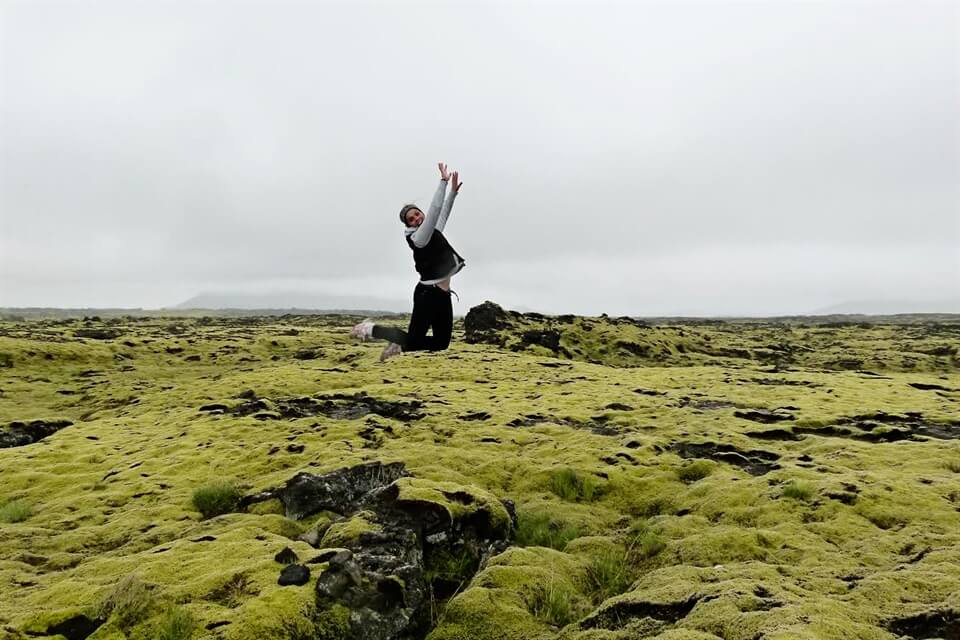
Do you have any other advice for digital nomads?
I think the following five questions are ones every potential digital nomad should ask themselves before they embark on this lifestyle:
- Can I remote work in my current job? Because if yes, you may save yourself a lot of hassle.
- To freelance or not to freelance? You can now freelance in almost any profession and everyone has transferable skills to bring to a new freelance career. However, not everyone was made for freelancing and its rollercoaster of emotions and risks so this is a very worthy consideration.
- Warning! This is not a holiday! Do you really want to work and travel? You cannot do one without the other so be prepared for work being a constant in your life as well as travel.
- What are you prepared to give up? Yes, my life is rich with travel but I go without a lot too - seeing friends and family being top of the list. Are you prepared to do the same?
- What do you want to achieve? My lifestyle is a special, happy, lucky one and as long as I'm able to live this way I'm going to use the time and opportunities I have to chase my dreams. Spending more time writing my books is the big one for me at the moment and every day I do something to actively pursue this dream. Be clear in your own mind what you want to achieve while living like a digital nomad.
There are more questions to consider in this in-depth post answering lots of questions about becoming a digital nomad written by a long-term traveller Chris, and you can also read an interview with my good friend Peter Parkorr where I talked about how the balance between work and travel isn't always easy to maintain.
Re-reading this article I think the following advice is worth sharing here...
"... not everyone fully understands why we do what we do, because it’s a lifestyle that isn’t for everyone, especially at this time in my life when so many of my peers are “settling down”. The ironic thing about it is that I’ve never been more settled ; after being single for many years I’ve now got a great fella, a great job that I’m in control of and I’m actually saving money because I’m not living in one of the world’s most expensive cities anymore. We’re certainly not on one long holiday like some people think we are. So while I understand why people don’t “get" what we do, I would be silly to even think about this stopping us from doing what we are doing. We’ll stop when it stops working for us.
If you'd like to save or share this post, here's an image you can pin:
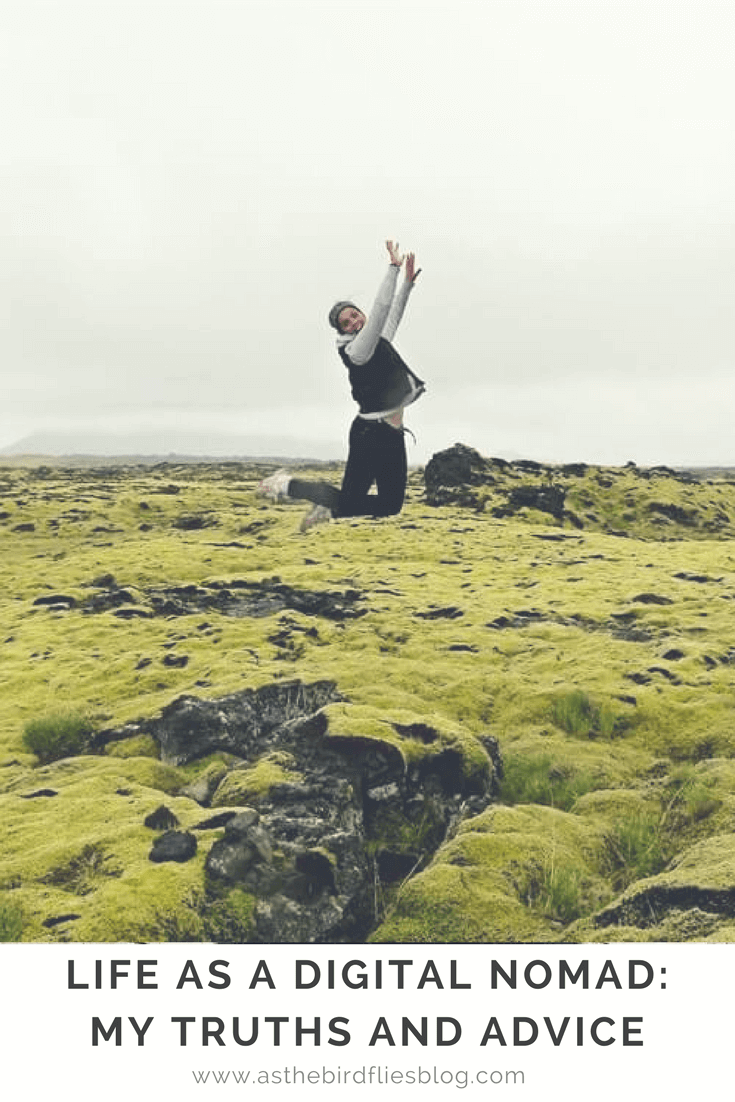
If you have any specific questions you'd like answering then please find me on Instagram, Facebook or Twitter - I love hearing from new (and old!) readers! Thank you for reading about and sharing my journey.
* Definition from Wikipedia.
 About the Blog & Frankie
About the Blog & Frankie Welcome to My Amsterdam Travel Blog!
Welcome to My Amsterdam Travel Blog! Welcome to My Luxury Family Travel Blog!
Welcome to My Luxury Family Travel Blog! Welcome to My Writing Blog!
Welcome to My Writing Blog! Lover Mother Other: Poems - Out Now!
Lover Mother Other: Poems - Out Now! I Write Stories That Move You
I Write Stories That Move You Order WriteNOW Cards - Affirmation Cards for Writers
Order WriteNOW Cards - Affirmation Cards for Writers Work With Me
Work With Me